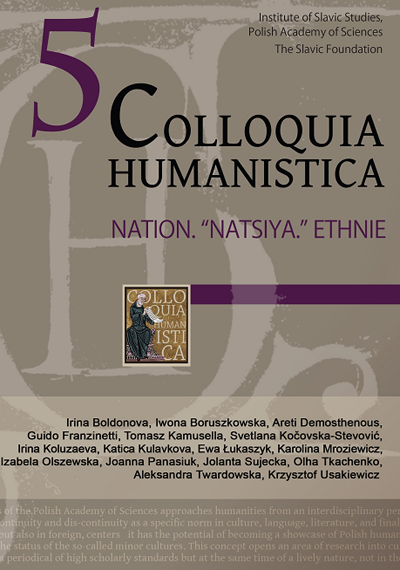O rzymskim pojęciu natio
On the Roman Concept of Natio
Author(s): Svetlana Kočovska-StevovićSubject(s): History, Language and Literature Studies, Cultural history, Theoretical Linguistics, Social history, Ancient World, Semantics
Published by: Instytut Slawistyki Polskiej Akademii Nauk
Keywords: natio; Cicero; Roman concept; tribal community; foreigners; entity; place of birth; place of origin;
Summary/Abstract: The aim of this paper is to examine the Roman concept of natio: what did the ancient Romans mean by it, in what sense did they use the term and how does the ancient Roman concept of natio differ from the modern concept of nation? The study is based on a corpus of Latin texts that belong to different periods and different genres. The earliest usages date back to the third century BC and the latest ones to the late second century AD. The texts that form the main source of data derive from the so-called Ciceronian age of Latin literature (81–43 BC). The study shows that the Roman concept of natio differed in many respects from the modern concept of nation. For the Romans, natio was primarily a collective term for a tribal community of foreigners who were tied together by the place of birth, but who were not organized into a politically recognized entity. The term was also used pejoratively to denigrate communities of people derided for their common values, interests and activities, as well as a term which referred to the place of origin of a product.
Journal: Colloquia Humanistica
- Issue Year: 2016
- Issue No: 5
- Page Range: 3-18
- Page Count: 16
- Language: English

